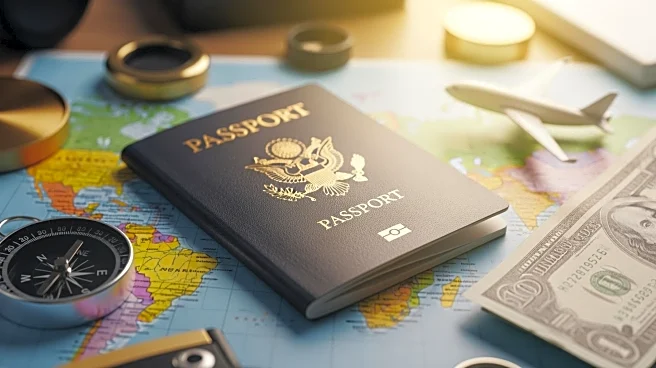What's Happening?
The United States passport has fallen out of the top 10 most powerful passports globally for the first time in 20 years, according to the Henley Passport Index. The U.S. passport, which was ranked 7th in 2024, is now tied with Malaysia for 12th place,
allowing visa-free access to 180 countries. The decline is attributed to several factors, including strict immigration policies under the Trump Administration and a lack of visa reciprocity. Countries like Brazil have ended visa-free travel for U.S. citizens, citing reciprocity issues. Additionally, changes in visa policies by other nations, such as China, Papua New Guinea, and Myanmar, have further impacted the rankings.
Why It's Important?
The drop in passport power reflects a shift in global mobility and soft power dynamics, as nations that embrace openness and cooperation surge ahead. This decline could affect U.S. citizens' ability to travel freely and may signal broader implications for international relations and economic exchanges. The decrease in passport power may also lead to increased costs and barriers for U.S. travelers, impacting tourism and international business. Furthermore, the trend of Americans seeking alternative residences and citizenship options has surged, indicating a potential shift in how U.S. nationals view global mobility and their place in the world.
What's Next?
The U.S. may need to reconsider its immigration and visa policies to regain its standing in global passport rankings. Potential diplomatic efforts to improve visa reciprocity could be explored to enhance travel freedom for U.S. citizens. Additionally, the rising costs of visas and travel authorizations may prompt discussions on policy adjustments to facilitate easier international travel. Stakeholders, including policymakers and travel industry leaders, may need to address these challenges to prevent further decline in passport power and its associated impacts.
Beyond the Headlines
The decline in U.S. passport power may have deeper implications for national identity and perceptions of American influence abroad. As global mobility becomes increasingly important, the U.S. may face challenges in maintaining its leadership role in international affairs. The shift may also reflect broader cultural and political trends, including isolationist policies and changing attitudes towards immigration and international cooperation.
















